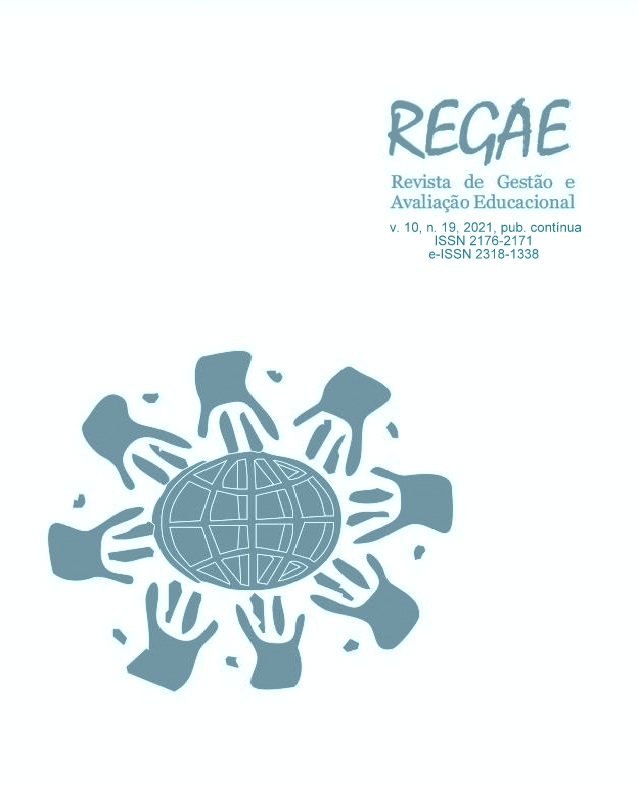Evaluation of the learning of the Tales theorem at the Kuito-Bié Secondary School/Angola
DOI:
https://doi.org/10.5902/2318133850657Keywords:
Avaliação, Teorema de Tales e GeoGebraAbstract
Contribute to the development of mathematical activity during the process of evaluation of the learning of the 2nd Tales theorem supported by computer resources in the Geometry unity is a purpose of this article. In order to clarify the objective of the article, tasks and methodological suggestions for the treatment of the 2nd Tales theorem, using the GeoGebra software. In the development of the article, aspects such as: evaluation of mathematical content, treatment of the 2nd theorem of Tales, evaluation and learning of the Tales theorem with GeoGebra and steps to apply GeoGebra in the treatment of the 2nd Tales theorem. The research is part of the descriptive paradigm, following an explanatory approach and used the methodology of criteria of experts, with the application of a questionnaire and an interview with 15 experts and student’s 9th grade in a school in Kuito-Bié. As a result of the research, the methodology for the treatment of the 2nd theorem was elaborated Tales with the use of technology, where the use of materials is not lost sight of manipulated, reinforced with the use of computerized means, thus improving the visual aspect and developing skills at work with these computer resources. With the use of this, after its validation by the experts, it was noticed that the students investigated the different triangles inscribed on a circumference and were able not to just to discriminate the characteristics of these figures, but also, to recognize them
visually, determining the amplitude of their angles according to a classification geometric design created by you.
Key-word: evaluation, Tales theorem; Geogebra.
Downloads
References
ALMENARA, Julio Cabero; OSUNA, JULIO Barroso. La utilización del juicio de experto para la evaluación de TIC: El coeficiente de competência experta. Bordo - Revista de Pedagogía, Madrid, v. 65, n. 2, 2013, p. 25-38.
CASTILLO ARREDONDO, Santiago; CABRERIZO DIAGO, Jesús. Evaluación de programas de intervención socioeducativa: agentes y âmbito. Madrid: Pearson Educación, 2005.
BOGIOVANNI, Vincenzo. O teorema de Tales: uma ligação entre o geométrico e o numérico. REVMAT - Revista eletrónica de Matemática, Florianópolis, v. 2, n. 5, 2007, p. 94-106.
DIAS, Diana. Psicologia da aprendizagem: paradigmas, motivação e dificuldade. Lisboa: Sílabo, 2018.
DUVAL, Raymond. Semiosis e pensamento humano. São Paulo: Livraria da Física, 2009.
ECOLELO, Benjamim; CHICAPA, Carvalho Nunes. A utilização do GeoGebra no tratamento metodológico do Teorema de Tales. Revista Órbita Pedagógica, Huambo, v. 3, 2018, p. 1-11.
FERREIRA, Carlos Alberto. A avaliação no quotidiano da sala de aulas. Porto: Porto, 2007.
LEITE, Rubervan da Silva. Formação de professores de Matemática e tecnologia digital: um estudo sobre o teorema de Tales. São Paulo: PUCSP, 2017. 156 f. Dissertação (Mestrado em Educação Matemática) - Programa de Estudos Pós-Graduados em Educação Matemática, Pontifícia Universidade Católica de São Paulo.
NCTM. Princípio para a ação: assegurar a todos o sucesso em Matemática. Lisboa: APM, 2014.
SANTOS, Elvira L; Santos, Leonor. O papel do GeoGebra nas prática de regulação do ensino da área do paralelogramo. Quadrante, Lisboa, v. 28, n. 1, 2019, p. 6-26.
SILVA, Marcos dos Santos. O uso do teorema Rouché-Capelli na resolução de sistemas lineares. Dissertação (mestrado em Matemática). Campina Grande: UFCG, 2019. 90f. Universidade Federal de Campina Grande.
ZABALA, Antoni. Prática educativa. Porto Alegre: Artmed, 2010.
Downloads
Published
How to Cite
Issue
Section
License
Authors keep copyright and concede to the magazine the right of first publication, with the work simultaneously licensed under the Creative Commons Attribution 4.0 International, non-commercial license with no derivative work, which allows to share the work with no author recognition and initial publication in this magazine.
Authors has authorization to overtake additional contracts separately, to distribute a non-exclusive version of the work published in this magazine: For example: to publish in an institutional repository or as a chapter of a book, with authorial recognition and initial publication in this magazine.
Authors are allowed and are encouraged to publish and distribute their work online. For example: in institutional repositories or in their own personal page – at any point before or during the editorial process, because this can result in productive changes, as well as increase the impact and the mention to the published work.






